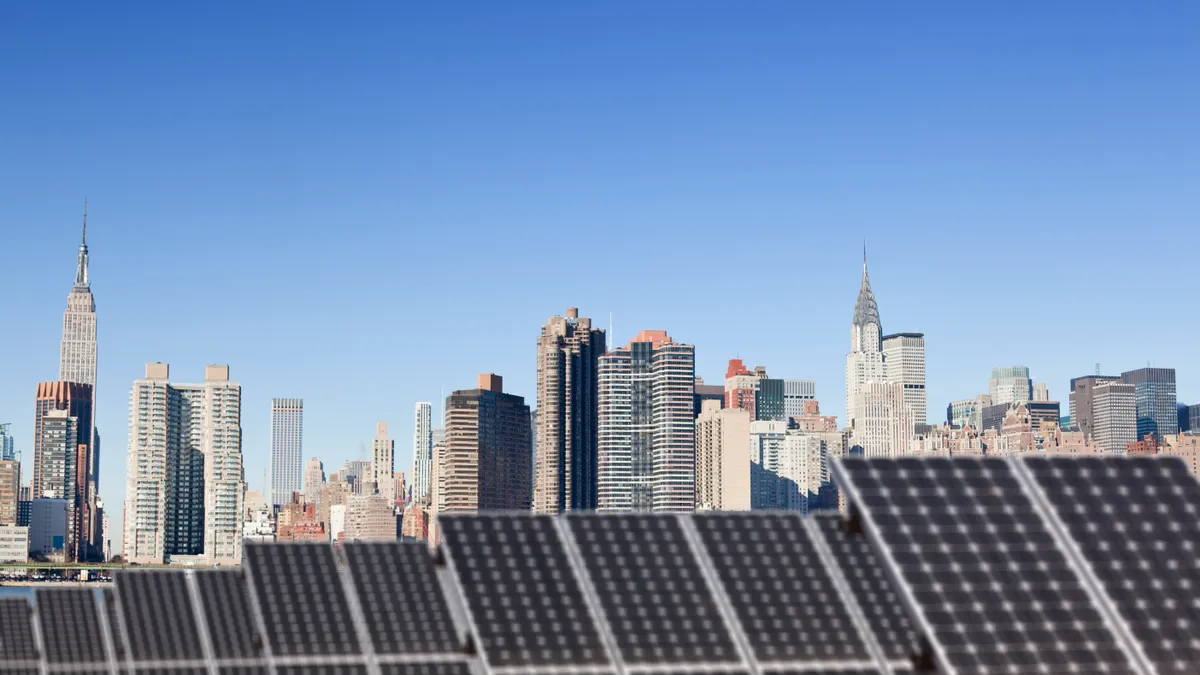Raya Salter is the founder of the Energy Justice Law and Policy Center and a member of the New York State Climate Action Council and the New York Public Service Commission Energy Policy Planning Advisory Council.
Last month, a troubling report penned by the New York State Energy Research and Development Authority acknowledged that New York is not on track to meet the ambitious greenhouse gas emissions reduction targets in our 2019 Climate Act. If this were not bad enough, influential decision-makers and industry players have been calling for New York to weaken it. They want to expand allowable generation sources beyond renewables, and entertain “low-carbon and carbon-free alternatives,” including nuclear power. On September 4-5, the governor’s administration is hosting a Future Energy and Economy Summit at which two of the five panels featured will be speaking about the future of nuclear energy in New York.
We need to be clear: nuclear power is neither a climate solution nor a clean energy solution. It is an expensive, toxic, and dangerous distraction that will only impede New York's progress toward its climate goals. New York needs look no further than the Vogtle reactors in Georgia or the canceled NuScale reactors in Utah. The Vogtle project took 16 years to complete its first reactor and cost more than twice its initial estimate. Costs for the NuScale project doubled before construction even began; eight years after it was first proposed, the project had neither broken ground nor received a single permit.
Of course, New York has its own nuclear cautionary tale: the Shoreham Nuclear Power Plant on Long Island. Promised as a pathway to energy independence in the ‘70s and ‘80s, Shoreham became a financial disaster. The project's cost soared from an initial $75 million estimate to over $6 billion. Due to local opposition, regulatory challenges and safety concerns, the plant was decommissioned before it could provide any commercial power. Long Island ratepayers are still paying Shoreham’s debt. Shoreham’s story is a stark reminder that nuclear projects often come with insurmountable economic and social costs.
Our Climate Act was hard won and a highly supported piece of legislation that led the nation on climate and environmental justice. Our agencies and regulators must follow, and not erode, its protections for frontline communities. Nuclear does the opposite. New York’s existing reactors, their radioactive waste and waste spills, continue to pose a threat to communities who live where nuclear operations, dumping and transport occur. There is no permanent solution to waste that will remain radioactive for thousands of years. Peer-reviewed studies examining these impacts on surrounding communities have identified a number of grave environmental harms and public health risks. Many of these risks disproportionately impact Indigenous communities and other communities of color in the U.S. and worldwide.
Proponents of “advanced” nuclear technologies argue that they offer something new. However, these technologies, including small modular reactors, are based on old concepts that previously failed due to safety, waste management and economic challenges. Claims that these reactors will provide cheaper, safer and faster nuclear energy remain unproven, echoing the same empty promises that led to past failures.
Including nuclear power in New York’s transmission policy planning would also be misguided. Nuclear energy does not align with the goals of a flexible, renewable-driven grid. Relying on nuclear would distract from building infrastructure to support truly renewable sources like wind and solar, which are becoming increasingly cost-effective and reliable. Nuclear power would lock us into a centralized, high-risk generation model that doesn't fit the decentralized nature of modern clean energy systems.
There is a lot of promise for our climate goals despite the gloomy projection. Our state is leading the way in piloting new, clean, efficient and at-scale heating and cooling technologies like utility thermal energy networks. More New Yorkers than ever are interested in and learning about green technologies and the jobs that come with them. We don’t need scenario planning that promises nuclear power on a mythical timeline towards a slower, less ambitious goal. What we need is for New York to meet its climate challenges with urgency and, acting in the public interest, reject false solutions like nuclear power.













